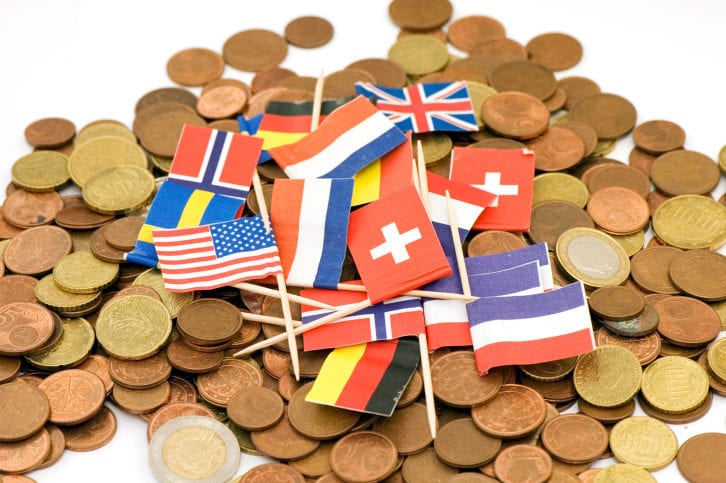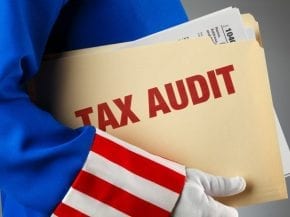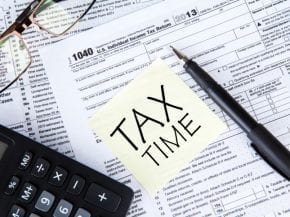- browse by category
- Audit Assistance
- Business and Taxes
- Celebrities in Tax Debt
- Cryptocurrency Taxes
- Economic News
- Foreign Banking
- Innocent Spouse
- IRS Headlines
- IRS Wage Garnishment
- Marriage & Divorce
- Payroll Tax
- Retirement
- Revenue Officers
- State Tax Headlines
- Stop IRS Debt
- Success Stories
- Tax and Politics
- Tax Attorney
- Tax Codes
- Tax Debt Help
- Tax Evasion
- Tax Levy
- Tax Lien
- Tax Payment Plans
- Tax Return Filing
- Tax Tips

No one likes paying taxes, but some bite the bullet and pay anyway. Others get crafty and store their money overseas, hoping to avoid the long arm of United States tax law. A taxpayer can save a few bucks from going to Uncle Sam’s coffers. But the consequences make offshore tax evasion not worth it. If you’re hiding money overseas, coming clean to the IRS is in your best financial interest.
Here’s why.
5 Reasons to Come Clean When Hiding Money Overseas
The IRS’s Vultures are Circling
Until recently, the IRS wasn’t zealously pursuing international tax dodgers. But since 2009, the federal government has made a concerted effort to rope them in to U.S. jurisdiction. The U.S. government is now working with foreign governments to share information on tax evaders with the goal of bringing them to justice.
The U.S., United Kingdom, and Australia announced a partnership to share financial information of entities organized in countries like Singapore, the Cayman Islands, and the British Virgin Islands, among others. The information included the identities of the entities’ principals and advisors. The IRS has also extended amnesty to some American owners of Israeli bank accounts.
Banks are Coming Clean to Uncle Sam
You may think you can outsmart the IRS by using foreign banks, but now the foreign banks are starting to come clean to the IRS.
In August 2013, Swiss banks reached a deal with the IRS to share information on tax evaders. And Swiss banks are spilling a lot of beans: among the information to be disclosed to U.S. tax officials includes how they assisted Americans with tax evasion, the identities of those who advised or assisted on the evasion, and the identities of the tax evaders themselves.
If the IRS learns of your tax evasion from an international bank – and not from you – you’ll soon be in the IRS’s crosshairs. Any money saved will soon be spent in the form of massive fines.
Reduced Fines for Those Who Come Clean from Hiding Money Overseas
To recoup lost tax revenue due to offshore tax evasion and to bring more and more American citizens into the IRS’s good graces, the IRS has created a program that provides amnesty for those that come clean. It’s not complete amnesty – you’ll still have to pay fines and penalties – but the fines are reduced compared to those that are levied on stubborn tax evaders.
The Offshore Voluntary Disclosure Program is one amnesty program. It’s brought more than $5 billion in lost tax revenue into the U.S. treasury. This is thanks to more than 39,000 taxpayers who decided to come clean. Instead, they pay a smaller fine and avoid criminal prosecution.
If you take advantage of the OVDP, you’ll have to file eight years of amended tax returns, pay all your back taxes, and pay interest and penalties. One penalty can seem high: 27.5% of the highest amount held in an overseas account over the past eight years.
If You Don’t Come Clean, You’ll Get Hit with Higher Penalties
If you don’t come clean and participate in the OVDP, you could face criminal prosecution as well as heftier fines. The penalty for failing to list overseas accounts more than $10,000 in value on your 1040 can be up to half of that account’s value for each year it was hidden from the IRS.
That can lead to not only the depletion of that hidden account, but a big bite out of your legitimate accounts as well.
Coming Clean on Overseas Accounts is Part of a Comprehensive Plan to Straighten Your Finances
Hiding money from the government can lead to a complicated financial situation. Not only do you have to keep track of the hidden assets, you have to structure your finances as if some of them don’t exist.
But putting everything out there for the IRS to see provides for a harmonious financial situation. You can legally organize everything together. And, coming clean on offshore bank accounts will save a significant amount of money from being spent in hefty fines and penalties. And there’s also the peace of mind.
Stop Hiding Money Overseas Today
Coming clean on your foreign bank accounts and finances may not be your ideal move. But it’s a good dose of financial medicine. And it can lead to a clean slate for your finances and for your relationship with the IRS.
Did you decide to come clean on your taxes? Why or why not? We want to know your story. Comment below or tweet us at @stopirsdebt.
Leave Comments

Top Tax
secrets revealed
Sign up for our newsletter and be the first to find out when exciting IRS news happens. Yes, exciting. We're really into taxes.


